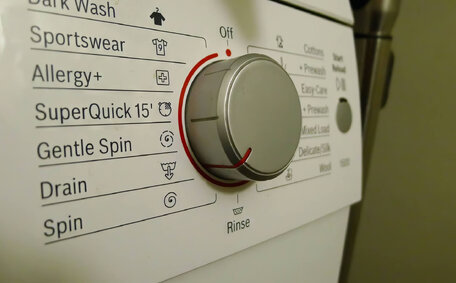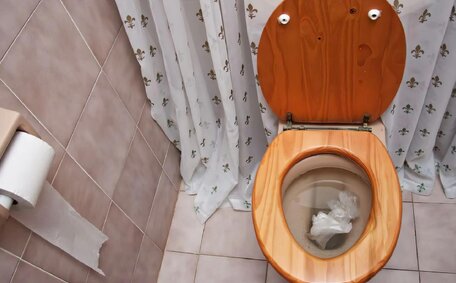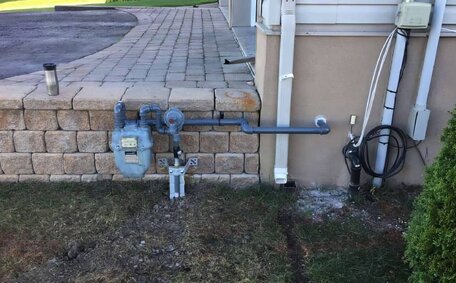Introduction to Off-Grid Hot Water Systems
Living off the grid necessitates robust solutions for hot water, crucial for daily life. Off-grid hot water systems leverage solar energy, ensuring environmentally sound and energy-efficient outcomes. Solar water heaters, in particular, deliver a sustainable means to meet hot water needs in remote dwellings.
Since homes severed from main power infrastructures, such as those employing grid solar innovations, have to harness energy from unconventional sources, there’s no reliance on external water heating systems. Solar panels, wind turbines, micro hydropower, and generators translate generated electricity into power for pumps, controllers, and backup heaters.
Solar hot water systems harness direct solar heat through thermal collectors, maintaining efficiency primarily via sunlight. Heat pump water heaters exemplify innovation by extracting ambient heat from the air to warm water, bypassing traditional energy sources.
Along with power system design, water heating methods and storage also play key roles in an effective off-grid system. Tankless water heaters can provide hot water on demand while systems with insulated storage tanks enable heating water efficiently, making more hot water available than larger conventional systems at any time. Smart technology can use your home’s design to optimise operation of the system your household uses and maintain your hot water supply while integrating alternative power sources for maximum efficiency and cost savings.
This article examines types, components, and setup of off-grid hot water systems, along with real-world applications for remote living scenarios. With the right combination of power, heating method, and storage, these self-sufficient systems can supply reliable hot water all year.
Solar Water Heating Solutions
Solar water heating, which employs the sun’s warmth directly to heat water, stands as a highly efficient method, surpassing systems that first convert solar energy to electricity.
Solar water heating works well across most Australian climates, specifically in areas where consistent sunlight supports solar efficiency.
There are two main types of solar water heating systems: passive and active. However, they typically provide hot water only during sunny days.
Passive systems, which use solar radiation without electrical components, are ideal for DIY solar projects. Active systems include electric pumps and extra infrastructure but can operate in all weather and are compatible with auxiliary heat sources.
Key components like solar collectors, storage tanks, and controllers play an essential role in capturing, storing, and managing heat for water.
Common collector types include flat plate and evacuated tube, with evacuated tubes often outperforming in efficiency. Water tanks feature insulation to minimise standby heat losses, contributing to overall system efficiency. Smart differential controllers turn backup heating on or off as needed.
Australia’s abundant solar resources make solar thermal systems a sustainable choice for the majority of hot water needs in off-grid conditions. Despite higher upfront costs, the long-term energy savings and minimal fuel bills of solar systems make them an economically sound choice.
Passive Solar Water Heating
Passive solar water heating depends solely on gravity and sunlight; its simplicity leads to lower costs, reduced maintenance and ease of installation.
There are two common system designs:
- Solar bags hang from buildings or structures facing the sun. Heat buildup inside warms the water, people use as water then rises to enter the pipes.
- Coiled black pipes sit on a rooftop or open area exposed to the sun. As the liquid flows through the pipes throughout the day, solar thermal radiation heats it.
Well-insulated rooftop solar storage tanks minimise heat loss. Basic systems are most effective in sunny conditions, ideal for areas with modest hot water requirements.
Active Solar Water Heaters
Pump solar water heaters actively utilise pumps and controllers to circulate water through solar thermal collectors. Unlike passive systems relying solely on gravity, active systems provide hot water on demand in any weather conditions when coupled with insulated storage tanks and auxiliary heating sources.
Solar collectors, like flat plate panels or evacuated tubes, are central to these systems, efficiently harnessing sunlight. The pumps circulate cold water from the storage tank through the heated panels where it becomes water heated by absorbing this thermal energy before returning hot to the insulated storage tank.
Differential temperature controllers track water temperatures, only activating the pump when sufficient solar heat is available. Sophisticated systems feature anti-freeze liquid in the solar loop to provide reliable heating during the winter months, even through frosty nights.
Integrating a booster heater powered by off-grid sources such as gas, electricity, LPG, diesel, biomass, or waste oil helps to reduce fossil fuel use and provides extra heating when needed.
Active solar hot water systems, more intricate to install and maintain, afford users full control over their hot water production under all conditions. Accounting for more than 60-90% of yearly hot water necessities, the long-term savings surpass the steeper initial expenditure for numerous residences in Padstow.
Heat Pump Water Heaters
Water heat pumps offer a consummate method to heat water off-grid, capitalising on ambient warmth from the environment. Hot water heat pumps distinguish themselves from standard electric heaters by utilising existing environmental heat, making them exceptionally efficient and using about 75% less electricity.
A refrigerant circulates through a heat exchanger outside, absorbing low-grade heat from the atmosphere. This warms the refrigerant which passes through a compressor, amplifying the heat further before it transfers through another heat exchanger to the water being heated and stored in an insulated tank. Sophisticated controls maintain optimal temperatures.
Optimal for climates above 7°C, some heat pump models function effectively down to -25°C, especially when coupled with solar power. With correct sizing and adequate solar PV support, one heat pump water heater can cater to most home hot water demands. Despite a higher initial cost, heat pumps ultimately deliver considerable savings due to their lower energy requirements.
Smartly integrated into Padstow’s off-grid systems, heat pumps offer efficient electric heating, filling the gap when solar output is limited. Heat pumps are also valued for their reliability and low maintenance, offering a practical and user-friendly hot water solution.
Comparing Efficiency and Costs
When selecting an off-grid hot water system, make sure to consider efficiency and long-term costs, which depend greatly on individual circumstances.
Solar water heating stands out as the most direct and efficient approach to meet renewable energy needs, potentially providing 60-80% of hot water over several decades. While initial costs exceed $5,000, the prospect of almost free water heating over two to three decades substantially offsets the initial investment.
Heat pumps also rank highly in efficiency, using 75% less electricity than conventional electric heaters. An initial investment between $3,000 and $4,000 pays off in 5-10 years. However, having a sufficient solar power system with PV panels to provide the necessary capacity is critical.
Passive solar heaters, as the most economical choices priced below $1,000, may occasionally demand additional energy for consistent hot water supply. Inclusion of electrical components for enhanced functionality incurs costs of $2,000 to $3,000, with payback periods spanning 7 to 15 years.
In remote Padstow areas with abundant sun and space for collectors, solar water heating thrives. Urban households must carefully weigh solar access, energy demands, and system capabilities based on climate and occupancy.
Sourcing Water for Off-Grid Use
When living off the grid, securing a reliable water source is essential for meeting needs like bathing, cleaning, and operating hot water systems. Rainwater harvesting emerges as the leading self-sufficient option, with treatment rendering lakes, rivers, springs, or bores as viable alternatives.
Effective rainwater catchment begins with substantial collection surfaces such as rooftops, sheds, and tanks. Gutters and downpipes funnel rainwater into an array of storage tanks, including cost-effective options such as concrete, polyethylene, galvanised steel, or bladder tanks. Tanks elevated on platforms enable gravity-fed water flow for use.
For properties without sufficient catchment area, surface water or groundwater extraction serve as backups. Lakes, rivers and springs often demand extensive treatment to remove contaminants and pathogens. Drilling bores provides access to cleaner groundwater, though flow rates may differ between locations. Regardless of source, extensive filtration and disinfection ensures safety.
With both reliable water supply and heating secured, off-grid living gains another modern convenience.
Rainwater’s soft, pH-neutral composition suits most heaters.
Installing and Maintaining Systems
Diligently installing off grid hot water system guarantees its safe, efficient, and dependable operation for the foreseeable future. The whole process encompasses evaluating the site, compiling essential materials and tools, fitting components accurately, and merging with the pre-existing off-grid infrastructure.
Solar water heating systems demand careful placement of collectors for maximum exposure, with secured mounting onto rooftops or stable ground installations. Heat pumps position outside with good airflow access and ventilation.
Once functioning, routine maintenance keeps everything running smoothly.
This includes checking and replacing anode rods in tanks, flushing collectors to remove sediment, inspecting seals, testing electrical components, monitoring system performance, cleaning filters, and clearing debris from external equipment after storms. Adhering to service guidelines ensures that your solar system provides over a decade of off-grid hot water reliability.
Troubleshooting Common Issues
Off-grid hot water systems may encounter occasional hiccups, but some basic troubleshooting can get things running smoothly again.
If your off grid solar hot water flows inconsistently or fluctuates in temperature, check any inline valves to ensure full open positions. Clogged solar collector piping reduces flow rates and available heat, so flush lines to restore peak performance. Temperature fluctuations may also stem from pump cycle malfunctions, necessitating adjustments to or replacements of the controller.
Leaks at pumps, valves, pipe joints, or as a result of tank corrosion indicate issues needing professional servicing. Catch issues early before extensive water damage or component failures arise. Consider preventative annual maintenance checks to ensure everything functions properly.
Total system shutdowns with no hot water production usually stem from power supply interruptions.
Examine breakers, wiring, and fuel or charge levels in your generator or battery. Non-functioning solar thermal circulation pumps also explain zero output. Resetting the system by power cycling can often restore normal functionality.
Regularly checking the system’s temperature gauges and flow meters helps detect minor discrepancies before they become major issues. Call Padstow Plumbing anytime for professional troubleshooting and repairs to restore your off-grid hot water reliability.
Financial Incentives and Rebates
Installing a grid solar hot water system may qualify Australian households for Renewable Energy Certificates (RECs). Solar hot water systems accrue RECs according to the climate zone and the annual solar contribution to energy needs.
This federal incentive aims to encourage uptake of renewable energy technology. Certified installers can help with the process and facilitate registration.
Here are some strategies where, by surrendering RECs to regulators, system owners receive point-of-sale rebates or payments from certificate traders to offset upfront system costs. Current estimates suggest solar hot water earns 4-10 RECs yearly, translating to $900-$2,200 in subsidies over ten years. Heat pumps also qualify for incentives lowering initial investments.
Case Studies of Off-Grid Installations
Real-world examples of successful off-grid hot water systems offer valuable insights to prospective users. Peter and Kate reside in a self-built rural retreat, 45 minutes from Padstow.
Needing reliable hot water self-sufficiency, they chose an active split solar hot water system with 300L storage for their hydronic floor heating in the bathroom.
They encountered challenges securing council approvals and sourcing compatible components for their custom designed house. However, they took innovative steps and the system now provides ample hot water year-round despite frosty winter nights. Thermal circulation handles short cloudy periods, with a wood stove boiler backup for unusually long cold and overcast stretches.
Another Padstow couple,menu Lucy and Andrew, renovated a weekender cottage 50km into mountainous national park terrain. With ample roof space but limited solar access in winter, the off-grid heat pump heating system now provides hot showers and laundry washes. Though dependent on sufficient battery storage, the system’s efficiency and automation make the compromise worthwhile.
Conclusion
An off-grid lifestyle often involves finding creative hot water solutions, seamlessly integrating them into daily life. As this article explored, with the right combination of renewable power sources, energy efficient heating methods, and smart storage, reliable hot water can become a reality.
Approaches such as active solar thermal or heat pumps now pave the way to heat water effectively around-the-clock, even in secluded areas, with the correct installation and upkeep. For customised guidance on off-grid hot water solutions, connect with our Padstow Plumbing specialists.






